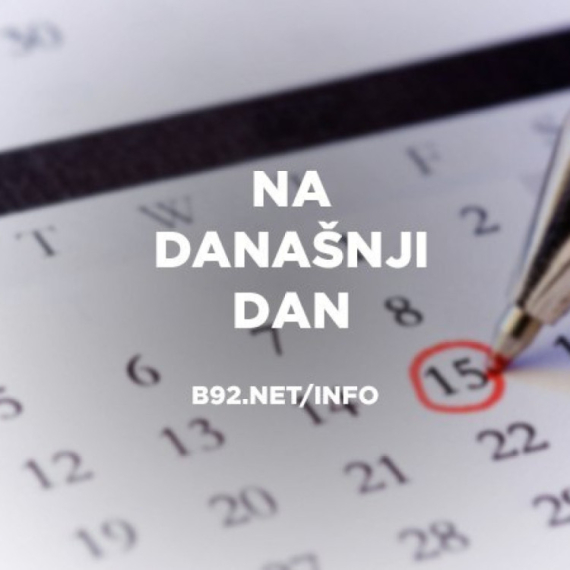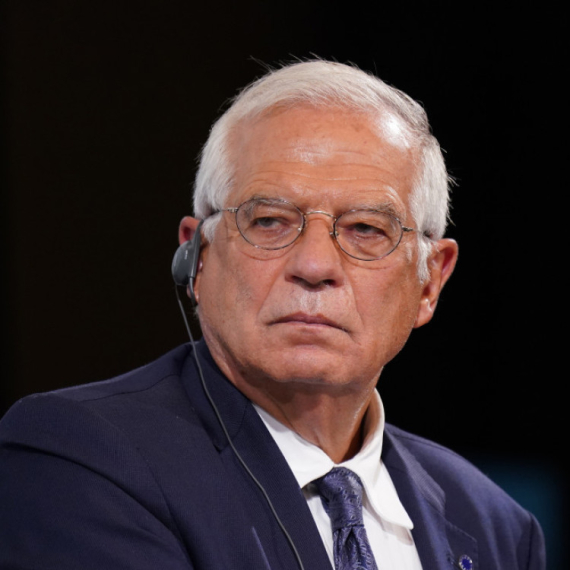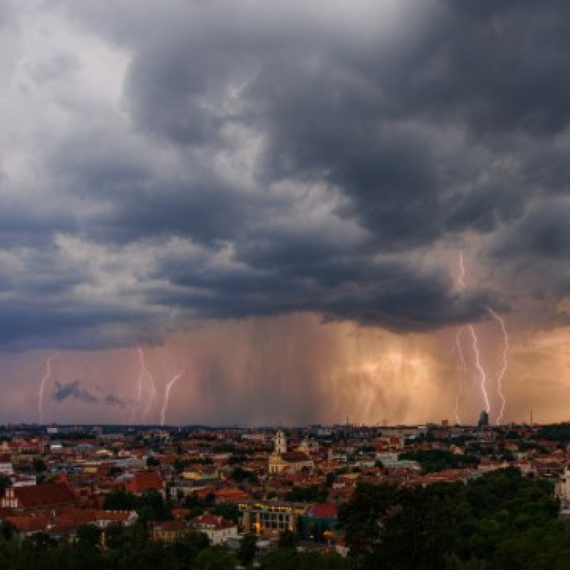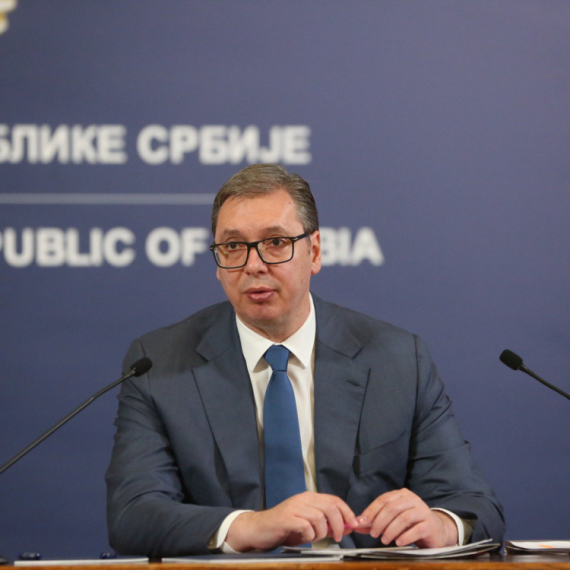EP official on EC Serbia report
The European Union criticized Serbian judicial reform, failure to commence a restitution process, the situation in Sandžak and in the media, Jelko Kacin said.
Tuesday, 19.10.2010.
16:14

The European Union criticized Serbian judicial reform, failure to commence a restitution process, the situation in Sandzak and in the media, Jelko Kacin said. The criticism will be submitted as a part of the forthcoming reports of the European Commission and European Parliament, said European Parliament rapporteur for Serbia Kacin. EP official on EC Serbia report "It is obvious that some things are simply left unfinished, so it is normal that they find their way to European Commission report, the report which I will submit to the European Parliament in early November," said Kacin. In an interview for Radio Free Europe, he added the purpose of the reports was to pinpoint these shortcomings in order to have them eliminated and overcome. He said the judicial reform had a negative side in the failure to dispatch decisions to all judges who have not been re-elected, thus rendering them unable to use otherwise available legal remedies. "This is simply untenable and we pointed that out to the Minister of Justice and the Prime Minister on several occasions. It needs to be overcome and needs to be overcome quickly," said Kacin. He noted that the fact Croatia - which is in the final stages of its negotiations on EU membership with the European Commission - ha not closed the chapter on the judiciary, the hardest and most complicated one to handle, must not serve as an excuse to Serbia "to avoid doing things which are long overdue." With regard to restitution, Kacin said that during the last two years he repeatedly warned that it needs to be completed and that he even received assurances that the Restitution Law will be adopted later this year. "Since it appears an empty promise, it would be good to warn about that issue as well," he said. The reports will, as he said, take heed of the issues with constituting the Bosnian National Council, which has not yet been established "for reasons that violate the rule of law, and due to discrimination and attempts to introduce some other rules that do not exist." "With the help of your ombudsman and the OSCE assistance, the problems began to resolve, but it is still an unfinished business. Until this is resolved, until the Bosniak National Council is established, this is an issue to be reminded of" Kacin said. He added that Belgrade "adopted a policy for Sandzak that appears absolutely counter-productive and conflicting, and in no way contributes to improving the image of Serbia." "On the contrary, even when we talk about the status of minorities, where certain progress has been made, all the aforemention simply pulls Serbia back," said Jelko Kacin. Speaking about the situation in the media, Kacin stressed the "complicity of the media and politics, where one can exactly see what political option is patron of which media, ie., how unprofessional these media are, because they openly favor certain political options." "We can safely say that the there is nothing left of the independent media space in Serbia," Kacin said. Another problem, he added, is that some cases of pressure on journalists have not yet been legally processed, so that it remains an open wound for Serbia. "Without progress in the media realm you cannot expect major shifts in politics. The media should control the politicians on the behalf of public, while in Serbia we have politicians who control the media," Jelko Kacin concluded. Jelko Kacin (Tanjug, file)
EP official on EC Serbia report
"It is obvious that some things are simply left unfinished, so it is normal that they find their way to European Commission report, the report which I will submit to the European Parliament in early November," said Kacin.In an interview for Radio Free Europe, he added the purpose of the reports was to pinpoint these shortcomings in order to have them eliminated and overcome.
He said the judicial reform had a negative side in the failure to dispatch decisions to all judges who have not been re-elected, thus rendering them unable to use otherwise available legal remedies.
"This is simply untenable and we pointed that out to the Minister of Justice and the Prime Minister on several occasions. It needs to be overcome and needs to be overcome quickly," said Kacin. He noted that the fact Croatia - which is in the final stages of its negotiations on EU membership with the European Commission - ha not closed the chapter on the judiciary, the hardest and most complicated one to handle, must not serve as an excuse to Serbia "to avoid doing things which are long overdue."
With regard to restitution, Kacin said that during the last two years he repeatedly warned that it needs to be completed and that he even received assurances that the Restitution Law will be adopted later this year.
"Since it appears an empty promise, it would be good to warn about that issue as well," he said.
The reports will, as he said, take heed of the issues with constituting the Bosnian National Council, which has not yet been established "for reasons that violate the rule of law, and due to discrimination and attempts to introduce some other rules that do not exist."
"With the help of your ombudsman and the OSCE assistance, the problems began to resolve, but it is still an unfinished business. Until this is resolved, until the Bosniak National Council is established, this is an issue to be reminded of" Kacin said.
He added that Belgrade "adopted a policy for Sandžak that appears absolutely counter-productive and conflicting, and in no way contributes to improving the image of Serbia."
"On the contrary, even when we talk about the status of minorities, where certain progress has been made, all the aforemention simply pulls Serbia back," said Jelko Kacin.
Speaking about the situation in the media, Kacin stressed the "complicity of the media and politics, where one can exactly see what political option is patron of which media, ie., how unprofessional these media are, because they openly favor certain political options."
"We can safely say that the there is nothing left of the independent media space in Serbia," Kacin said. Another problem, he added, is that some cases of pressure on journalists have not yet been legally processed, so that it remains an open wound for Serbia.
"Without progress in the media realm you cannot expect major shifts in politics. The media should control the politicians on the behalf of public, while in Serbia we have politicians who control the media," Jelko Kacin concluded.
























































Komentari 3
Pogledaj komentare